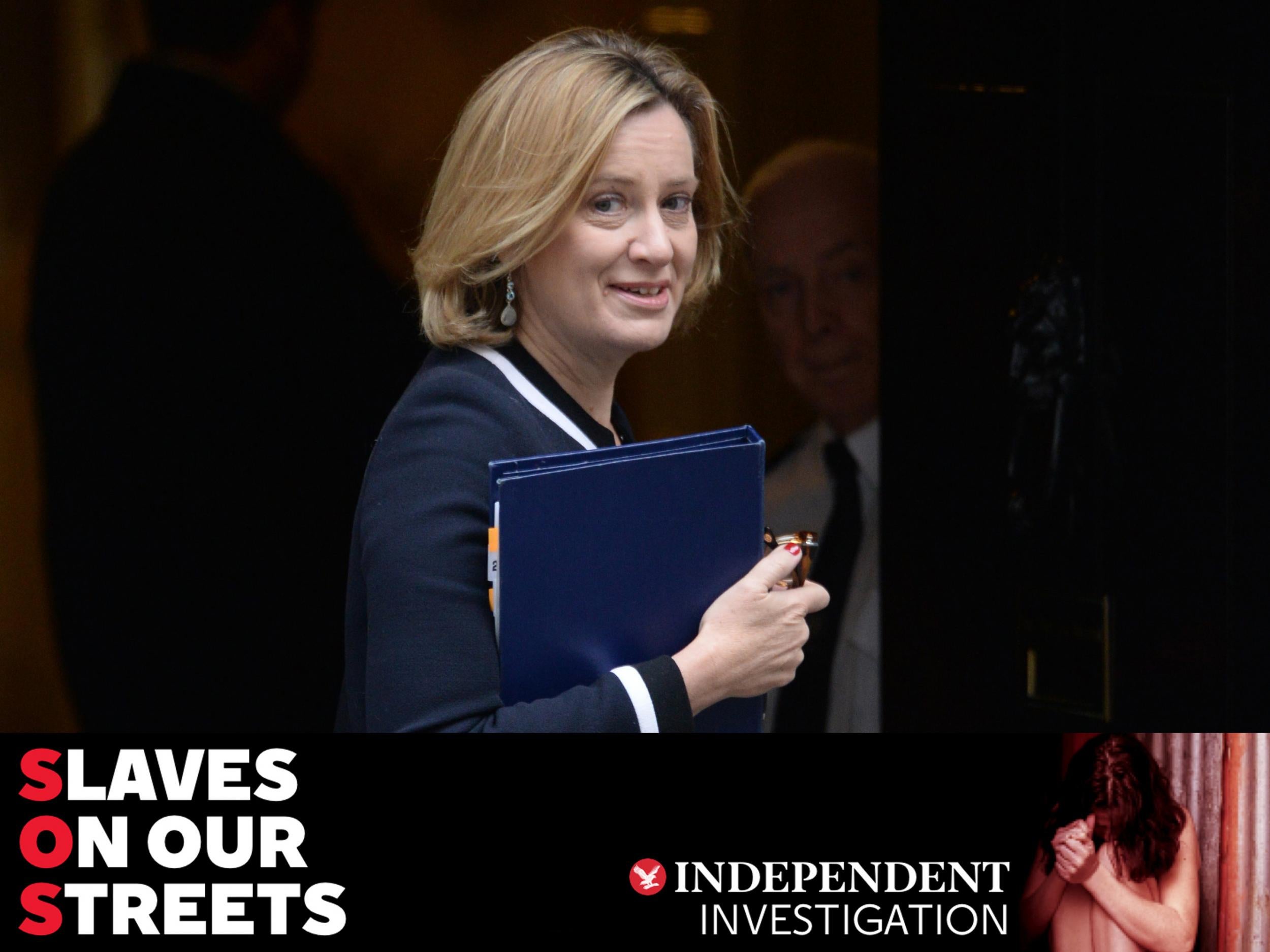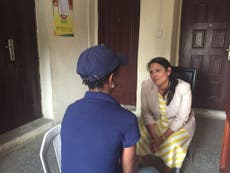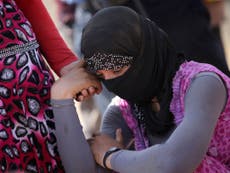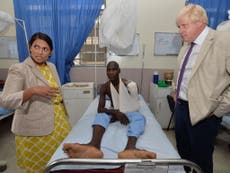Slaves on our Streets: We all have a responsibility to help wipe out ‘barbaric’ crime of modern slavery, says Amber Rudd
Every case is a tragedy and an affront to our values of decency and kindness, the Home Secretary says


Modern slavery is a barbaric crime. Each and every case is a both a tragedy and an affront to our values of decency and kindness.
With the creation of the Modern Slavery Act in 2015, this Government threw a light on this truly horrific form of abuse and exploitation. This landmark piece of legislation represented a step change in the way we pursue offenders and identify and support victims of this brutal crime, leading to countless prosecutions and the protection of thousands of innocent victims.
But each day The Independent and London Evening Standard’s excellent investigation into modern slavery highlights further examples of exploitation, which serve as a stark reminder of just how much more there is to do.
These stories, while horrific and heartbreaking, can often feel far removed from our daily lives.
But the truth is that we are all connected to modern slavery; and we all bear the solemn responsibility of seeing it wiped out.
It is troubling that modern slavery is a crime that can be hidden in the supply chains of the goods and services we use every day. The uncomfortable reality is that the money we spend could be driving demand for slavery across the globe.
Which is why it is absolutely vital that all businesses do everything they can to thoroughly interrogate their supply chains and open themselves up to public scrutiny.
The International Labour Organisation now estimates that there are more than 40 million people in slavery worldwide today. What that means in practice is that modern slavery should be a pressing concern for all businesses – and for all consumers.
We know that if businesses are not taking serious and sustained action to check their supply chains, then they could be profiting from slave labour – whether it’s on their premises or in a factory thousands of miles away.
The Modern Slavery Act’s transparency in supply chains provision requires businesses to publish an annual statement outlining what steps they have taken to prevent modern slavery in their business and supply chains. I am encouraged by the thousands of statements published, with businesses setting out a wide range of innovative activity.
Nonetheless, there is still a long way to go. Many businesses need to be more proactive and even those who are already taking action should think about what more they could do.
I want to see businesses identifying where the highest risks of modern slavery are in their business and supply chains and take targeted steps to address those risks.
That is why I was proud to chair the first Business Against Slavery forum on Monday, which brought together chief executives from a range of sectors to discuss how we could accelerate progress to tackle this.
The issues discussed are relevant to all businesses: how to collaborate and share best practice? Where are the opportunities to innovate? How can we ensure that all businesses are taking this seriously?
We know that collaboration is crucial. Even the largest businesses may not have enough leverage to change a supply chain on their own.
But when businesses work together they can effect real, meaningful, sustained change.
The Ethical Trading Initiative has brought textile brands and retailers together with spinning mills, NGOs and local government in Tamil Nadu in India to improve working conditions and empower vulnerable young women caught in debt bondage.
In addition, many businesses have specific expertise which could be brought to the fight against modern slavery directly.
For example, the International Labour Organisation estimates that modern slavery generates $150bn (£114bn) in illicit profits each year. This money is not being hidden under the mattress. So banks have an important role to play in identifying the financial footprint that modern slavery leaves behind and stopping perpetrators from laundering their proceeds.
Business can also help to support the victims of modern slavery. The Co-op Group, in partnership with the charity City Hearts, have launched the Bright Future programme to offer survivors of modern slavery a pathway to paid employment. The scheme offers paid work placements to survivors, with the possibility of securing full time employment at the end of the scheme. Opportunities like this can play a critical role in helping victims to rebuild their lives, reintegrate them into society and reduce the risk of their being re-trafficked.
So the challenge for all businesses is to think creatively about what role they could play. And the challenge for all of us is to motivate those businesses through our role as consumers.
Ultimately it is our money that could be flowing back to these ruthless criminals. So it is up to all of us to scrutinise and demand more of the businesses we use.
Meanwhile this Government will do everything in its power to pursue these despicable criminals and protect their victims. We are investing additional resources at home and overseas to step up our response.
In April we invested £2m in the Gangmasters and Labour Abuse Authority and granted it new powers to investigate serious labour exploitation and modern slavery offences. In the six months since, 28 operations have identified 621 workers suffering abuse and led to 40 arrests.
The National Crime Agency has also been intensifying modern slavery enforcement activity during 2017 as part of Operation Aidant, focusing on a different aspect of modern slavery each month. Recent enforcement work has targeted some of the key industries in the UK where vulnerable people are enslaved, including car washes and agriculture.
Meanwhile the Modern Slavery Taskforce, created and led by the Prime Minister, brings together criminal justice experts, security services and law enforcement to drive forward the domestic and global response.
This concerted and coordinated law enforcement action sends a clear message: those who profit from modern slavery will have nowhere to hide. We will investigate and expose them, and we will safeguard victims and bring offenders to justice.
But we can only truly succeed in wiping out this global problem by working together, with Government, businesses, NGOs and consumers all playing their part to consign slavery to history, where it belongs.








Join our commenting forum
Join thought-provoking conversations, follow other Independent readers and see their replies